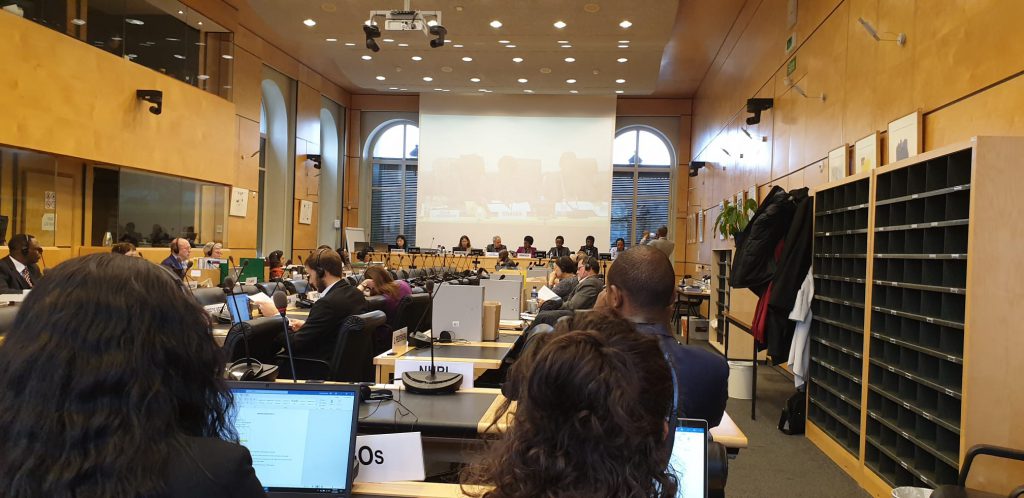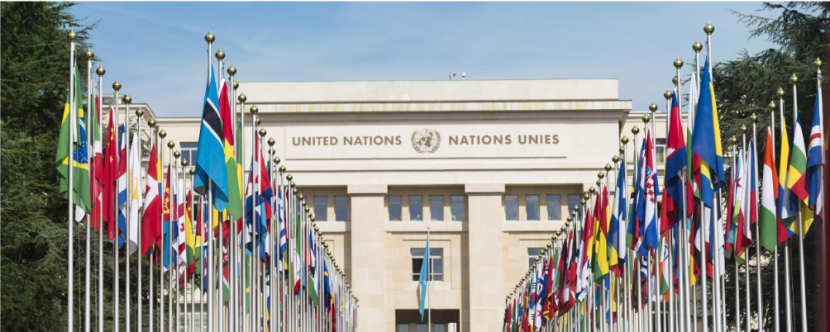Humanium attended the United Nations Committee on the Rights of the Child’s (CRC) 84th session this January 2020, where we sat in on the review of the state of Rwanda.
Humanium’s co-founder and CEO Arndt Soret was back in Rwanda again just a few months ago in November 2019 delivering Humanium’s Child Rights Workshops to 377 people. So with child rights in Rwanda particularly close to our hearts at Humanium, Arndt decided to go in person to the UN’s Palais de Justice in Geneva and listen to the review of Rwanda.
Who else attended?
Four Rwandan representatives participated, including the Minister for Gender Equality and a representative from the Ministry of Foreign Affairs. Mainly three of the eighteen CRC members present, one being international human rights lawyer Ms. Otani, carried out the review.
Rural Rwanda’s barriers to child rights
At the CRC review, Arndt heard the council members raise a series of key issues that must be addressed. Firstly, the rights of children living in rural areas was highlighted as an important area of disparity. It was pointed out that around 80% of Rwanda’s youth live in rural areas, and yet these areas are in large not provided with accessible electricity. Amongst other things, this prevents young people from accessing information about the rights that they possess. Indeed, the Rwandan government has made a promise of one computer per child, which seems unlikely if rural areas continue to be excluded from electricity provision.

Taking action on vulnerabilities
The rights of children particularly affected by vulnerability factors were also emphasised, since the state had not provided answers on how the rights of disabled children, and imprisoned mothers and children, would be protected. The council members went on to underline that child labour is too prevalent in Rwanda, along with child marriage which affects 7% of girls. It was recommended the state take further measures to prevent companies hiring children. The council members urged Rwanda to ratify the two Optional Protocols of the Child Rights Convention so that Rwandan children can benefit from the rights they enshrine concerning the sale of children.
Although Rwanda has taken commendable decisions in the area of child rights this past decade – in particular the establishment of the National Commission for Children by Law N.54, a governmental body for the promotion of child rights – its highly difficult and complex post-civil war and post-genocide context contributes to the pervasive problems that Rwandan children continue to face today, as highlighted by the CRC.
Humanium’s commitment to children in Rwanda
Hearing the UN’s assessment of challenges to child rights in Rwanda reinforced Humanium’s conviction that our work in the country is more important than ever. Our Child Rights Workshops in rural areas in the Kamonyi, Ruhango, Nyanza and Gatsibo regions in collaboration with our local partner AVSI, are in line with some of the recommendations from the UN CRC to the state this year. In light of grave barriers that persist in preventing many children from accessing their rights, Humanium renews its commitment to continuing these important rights-based efforts in the years to come.
You can help us continue to carry out this much-needed work by joining the Humanium family and becoming a member, or by choosing to donate and fuel the continuation of our projects, working for the fulfilment of child rights everywhere.
Written by Josie Thum


